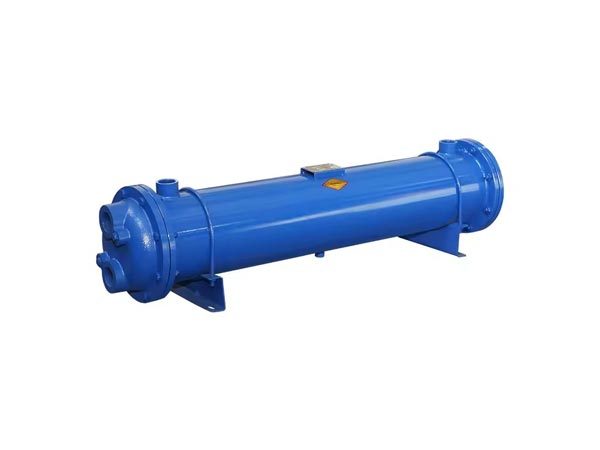The Advantages of Modular Scraped Surface Heat Exchangers: Enhancing Efficiency in Thermal Processes
Release time:
2025-06-26
The Advantages of Modular Scraped Surface Heat Exchangers Introduction to Modular Scraped Surface Heat Exchangers In today’s industrial landscape, optimizing thermal processes is crucial for efficiency, effectiveness, and sustainability. Among the various heat exchange methods available, **modular scraped surface heat exchangers** (MSSHE) have emerged as a leading solution. These systems are speci
The Advantages of Modular Scraped Surface Heat Exchangers
Introduction to Modular Scraped Surface Heat Exchangers
In today’s industrial landscape, optimizing thermal processes is crucial for efficiency, effectiveness, and sustainability. Among the various heat exchange methods available, **modular scraped surface heat exchangers** (MSSHE) have emerged as a leading solution. These systems are specifically designed to handle challenging fluids, offering significant advantages over traditional heat exchangers. This article explores the numerous benefits of MSSHE, illustrating their pivotal role in enhancing operational efficiency across multiple industries.

Understanding How Modular Scraped Surface Heat Exchangers Work
Before diving into their advantages, it’s essential to understand the operational mechanics of modular scraped surface heat exchangers. These systems utilize a unique scraping mechanism that continuously removes fouling materials from the heat transfer surface. This process ensures optimal heat transfer rates and prevents thermal degradation of the fluid being processed.
The Innovative Design of Modular Scraped Surface Heat Exchangers
One of the most remarkable aspects of MSSHE is their modular design, allowing for easy assembly and disassembly. This feature not only simplifies maintenance but also enables customization based on specific operational needs. The interchangeable components can be adapted to varying flow rates, temperature ranges, and fluid characteristics, making them suitable for a wide array of applications.
Key Advantages of Modular Scraped Surface Heat Exchangers
1. Enhanced Thermal Efficiency
One of the standout features of modular scraped surface heat exchangers is their **superior thermal efficiency**. The continuous scraping action facilitates constant heat transfer, preventing the buildup of deposits that can hinder performance. As a result, these exchangers can achieve higher heat transfer coefficients compared to traditional models, leading to reduced energy consumption and operational costs.
2. Versatility in Fluid Processing
MSSHE are particularly advantageous when dealing with viscous, non-Newtonian fluids, such as slurries, pastes, and emulsions. Their design accommodates a wide range of fluid properties, allowing industries like food processing, pharmaceuticals, and chemical manufacturing to use them effectively. The ability to handle challenging fluids without sacrificing efficiency makes MSSHE an invaluable asset in these sectors.
3. Reduced Downtime and Maintenance Costs
The modular nature of these heat exchangers significantly reduces **downtime and maintenance** costs. With their easy disassembly and reassembly process, maintenance can be performed swiftly, minimizing interruption to production. Furthermore, the scraping mechanism ensures that fouling is kept to a minimum, prolonging the intervals between required cleanings.
4. Improved Product Quality
The meticulous thermal management provided by modular scraped surface heat exchangers contributes to enhanced product quality. By maintaining consistent temperatures and preventing overheating, these systems help preserve the integrity of sensitive materials. This is particularly crucial in industries such as food and pharmaceuticals, where product quality is paramount.
5. Environmentally Friendly Solutions
As industries strive to reduce their environmental footprint, modular scraped surface heat exchangers offer a viable solution. Their efficient thermal transfer capabilities lead to lower energy consumption, which directly correlates with reduced greenhouse gas emissions. Additionally, their ability to handle viscous materials means fewer resources are wasted during processing.
Applications of Modular Scraped Surface Heat Exchangers
1. Food Processing Industry
In the food processing sector, maintaining strict temperature control is essential. Modular scraped surface heat exchangers excel in this area, allowing for efficient pasteurization, cooling, and heating of various food products. Their ability to handle thick sauces, creams, and other viscous foods makes them indispensable.
2. Pharmaceutical Manufacturing
In pharmaceutical applications, the safety and efficacy of products are of utmost importance. MSSHE provide precise control over thermal processes, ensuring that active ingredients remain stable and effective. Their effective cleaning mechanisms also help maintain the hygiene standards required in pharmaceutical production.
3. Chemical Processing
Chemical manufacturing often involves highly viscous fluids that can pose challenges for conventional heat exchangers. Modular scraped surface heat exchangers effectively manage these fluids, providing consistent thermal performance and minimizing the risk of product degradation.
4. Wastewater Treatment
In wastewater treatment, heat exchangers play a critical role in energy recovery and process optimization. MSSHE can efficiently handle the viscous and variable nature of wastewater, enhancing the overall efficiency of treatment processes.
Comparing Modular Scraped Surface Heat Exchangers to Traditional Heat Exchangers
When assessing the advantages of MSSHE, it is essential to compare them with traditional heat exchangers.
1. Performance Efficiency
Traditional heat exchangers often face challenges with fouling, leading to decreased efficiency over time. In contrast, the scraping action of MSSHE ensures that heat transfer surfaces remain clean, significantly enhancing their performance and longevity.
2. Maintenance and Cleaning
Maintenance for traditional heat exchangers can be labor-intensive and time-consuming. In comparison, the modular design of MSSHE simplifies maintenance, allowing for quick access to components for cleaning and inspection.
3. Cost-Effectiveness
While the initial investment in modular scraped surface heat exchangers might be higher, the long-term savings from reduced energy consumption and lower maintenance costs often result in a favorable return on investment. Traditional heat exchangers, while cheaper upfront, may incur higher operational and maintenance costs over time.
Challenges and Considerations When Implementing MSSHE
Despite their numerous advantages, there are some challenges associated with the implementation of modular scraped surface heat exchangers.
1. Initial Investment Costs
The upfront costs for MSSHE can be higher than traditional heat exchangers, which may deter some businesses. However, it’s crucial to consider the long-term savings and efficiency these systems provide.
2. Technical Expertise Required
Implementing and maintaining modular scraped surface heat exchangers may require specialized technical knowledge. Training personnel to operate and maintain these systems efficiently is essential to maximize their benefits.
3. Integration into Existing Systems
Integrating MSSHE into existing manufacturing setups can pose logistical challenges. Proper planning and engineering assessments are necessary to ensure seamless integration and optimal performance.
Future Trends in Modular Scraped Surface Heat Exchangers
As industries evolve, the demand for more efficient and versatile heat transfer solutions will continue to rise. Modular scraped surface heat exchangers are likely to undergo several advancements to keep pace with these trends.
1. Increased Automation
The future may see the integration of automation technologies in MSSHE to enhance efficiency and reduce human intervention in maintenance processes. Automated cleaning systems could further optimize performance and reliability.
2. Enhanced Materials and Designs
Ongoing research into new materials and innovative designs will likely yield even more efficient modular scraped surface heat exchangers. These advancements could lead to lighter, more durable components that withstand a wider range of operational conditions.
3. Sustainability Innovations
As sustainability becomes a core focus across industries, future developments in MSSHE will likely prioritize eco-friendly materials and energy-efficient designs. These enhancements will further solidify their position as a leading solution for environmentally conscious operations.
FAQs About Modular Scraped Surface Heat Exchangers
1. What types of fluids can be processed with modular scraped surface heat exchangers?
MSSHE are ideal for processing a wide variety of fluids, including viscous, shear-sensitive, and non-Newtonian fluids such as slurries, emulsions, and food products.
2. How often do modular scraped surface heat exchangers need maintenance?
Maintenance frequency depends on the specific application and fluid characteristics. However, the design of MSSHE typically allows for extended intervals between cleanings compared to traditional heat exchangers.
3. Are modular scraped surface heat exchangers energy-efficient?
Yes, MSSHE are designed to optimize heat transfer efficiency, leading to reduced energy consumption and lower operational costs over time.
4. Can modular scraped surface heat exchangers be customized for specific applications?
Absolutely. The modular design of these heat exchangers allows for customization based on the unique requirements of different industries and applications.
5. What are the key factors to consider when selecting a modular scraped surface heat exchanger?
When choosing an MSSHE, consider factors such as fluid properties, temperature requirements, maintenance needs, and integration capabilities with existing systems.
Conclusion
In conclusion, modular scraped surface heat exchangers represent a significant advancement in heat transfer technology. Their unique design and operational capabilities provide numerous advantages, including enhanced thermal efficiency, versatility, and reduced maintenance costs. As industries continue to prioritize efficiency and sustainability, MSSHE are poised to play a crucial role in shaping the future of thermal processes across various sectors. Embracing this innovative technology is essential for companies looking to optimize their operations and maintain a competitive edge in the ever-evolving industrial landscape.
Latest News
The Future of Wood Stove Heat Exchangers: Trends to Watch
The Future of Wood Stove Heat Exchangers: Trends to Watch Table of Contents 1. Introduction to Wood Stove Heat Exchangers 2. Understanding the Technology Behind Wood Stove Heat Exchangers 3. Key Trends Influencing the Future of Heat Exchangers 3.1 Advancements in Material Science 3.2 Enhanced Efficiency Standards 3.3 Integration of Smart Technology 4. Environmental Impact and Sustainability 5. Con
2025-06-28
Cam rotor pumps help industrial production upgrades
Cam rotor pumps help industrial production upgrades
2025-06-27
Maximizing Efficiency with Wood Stove Heat Exchangers
Wood stove heat exchangers are innovative devices designed to enhance the heat transfer capabilities of wood stoves, making them more efficient and effective in warming spaces. By maximizing the use of heat produced during combustion, these exchangers help to distribute warmth throughout a given area, significantly improving the overall heating performance. One of the primary functions of a wood
2025-06-27
The Advantages of Modular Scraped Surface Heat Exchangers: Enhancing Efficiency in Thermal Processes
The Advantages of Modular Scraped Surface Heat Exchangers Introduction to Modular Scraped Surface Heat Exchangers In today’s industrial landscape, optimizing thermal processes is crucial for efficiency, effectiveness, and sustainability. Among the various heat exchange methods available, **modular scraped surface heat exchangers** (MSSHE) have emerged as a leading solution. These systems are speci
2025-06-26
Understanding Scraped Surface Heat Exchangers: Key Insights for Industrial Applications
Scraped surface heat exchangers (SSHEs) are essential devices in industrial thermal management, particularly suited for processes that involve viscous fluids or those containing solid particles. Unlike traditional heat exchangers, SSHEs have a unique design that enhances heat transfer efficiency through a scraping mechanism. The primary function of a scraped surface heat exchanger is to facilitate
2025-06-25
Why Regular Testing is Crucial for Scraped Surface Heat Exchangers
Understanding Scraped Surface Heat Exchangers Scraped surface heat exchangers (SSHEs) are specialized equipment designed for efficient heat transfer in processes involving viscous fluids, such as food, pharmaceuticals, and chemicals. The unique scraping mechanism prevents the build-up of deposits, allowing for effective heat transfer and better product quality. However, maximizing the performance
2025-06-24








